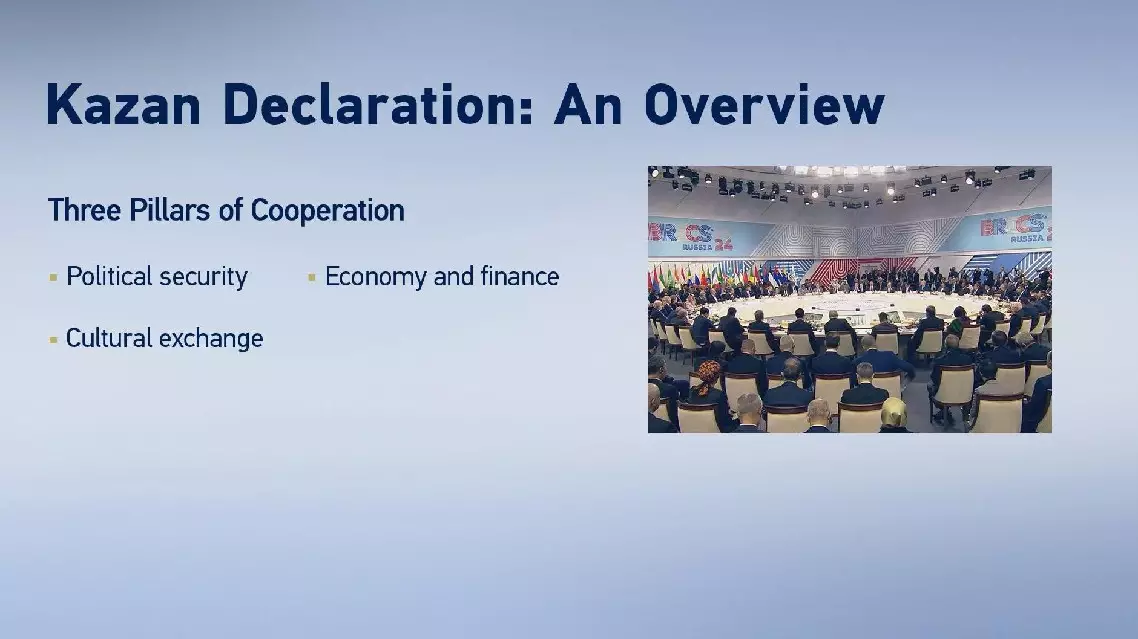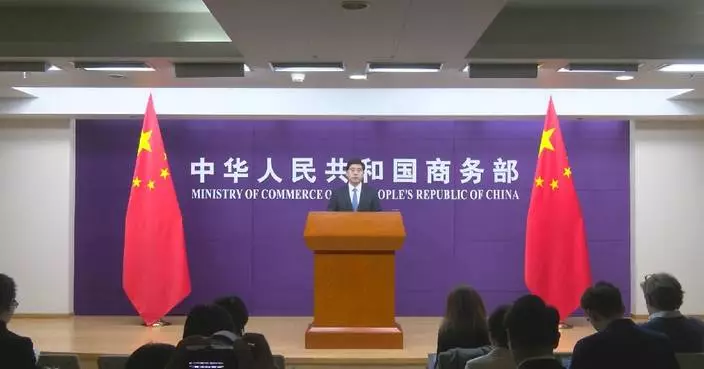BRICS leaders issued a joint declaration covering a wide range of issues from the reform of the United Nations (UN) to ongoing global conflicts, following the group's 16th summit that took place in Kazan on Wednesday.
The declaration has 134 provisions in total, one of which addressed the reform of the UN.
"We reaffirm our support for a comprehensive reform of the UN, including its Security Council, with a view to making it more democratic, representative, effective and efficient," the document read. This involves expanding the representation of developing countries to better respond to global challenges.
The declaration identifies three pillars of cooperation, which include political security, economy and finance, and cultural exchanges.
It welcomes the interests from the Global South and endorses a partnership with emerging markets and developing countries.
BRICS leaders called for strengthening multilateralism to create a more just world order, supporting the UN and World Trade Organization-centered trade mechanisms. They also advocated comprehensive reforms of these institutions to enhance the representation of developing nations.
Addressing global issues, BRICS leaders called for a peaceful resolution to the Russia-Ukraine conflict, as well as the humanitarian crisis in Gaza. They urged for immediate ceasefire and support for Palestine's UN membership.
On economic cooperation, leaders pledged to enhance macroeconomic policy coordination, while promoting reforms to ensure fairness and inclusivity in the international financial architecture.
The declaration also emphasizes the respect for the diversity of world civilizations and the promotion of the cooperation among Global South women entrepreneurs.

BRICS leaders adopt joint declaration following summit in Kazan
As a financial transformation continues to play out in Thailand, Chinese mobile payment systems are leading the way in facilitating cashless payments across the country.
Thailand, like other countries in the region, is experiencing the rise of digital payments. ASEAN now stands out as the world's fastest-growing mobile wallet market.
QR codes have revolutionized how money moves in Thailand, the second-largest economy in Southeast Asia. What was once a cash-heavy society has now embraced a future where coins and notes are nearly obsolete.
At the heart of the country's digital payments boom are Chinese mobile payment platforms that have empowered small businesses, given tourists more freedom to explore, and transformed Thailand into a seamless digital economy.
"Thailand and China have a close economic relationship. And we have huge international trade between these two nations. Thailand adopted mass digital transformation the same as happened in China. It will increase rapidly," said Anusorn Tamajai, dean of the School of Economics at the University of the Thai Chamber of Commerce.
Behind the scenes, banks in the region have been connecting their systems, allowing their residents to use QR payments for cross-border transactions without any fees, generally at favorable conversion rates.
Thailand's Kasikornbank has been making great strides in partnering with China's UnionPay International, a leading payment services provider, to offer its users greater convenience.
"We have been partnering with UnionPay for some time and since going into WeChat Pay as well, we have reached quite a tremendous number of merchants and payment points for all the consumers. They don't have to bring in the physical cash anymore," said Pipatpong Poshyanonda, President and Executive Director at Kasikornbank Public Co. Ltd.
But this cashless revolution is not just about convenience, it's about transforming the way people live, work, and connect.
A regional QR code payment system will no doubt boost financial ties and economic integration across countries, making trade and investment easier and faster. It would also encourage the use of local currencies in cross-border transactions.
"The regional financial system will less depend on the U.S. payment system and U.S. dollar," said Tamajai.

China's mobile payment systems lead rapid development of Thailand's digital economy










